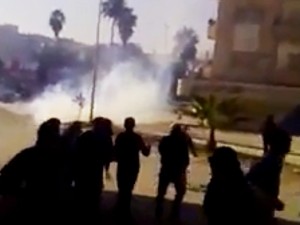Many overseas Filipino workers (OFWs) in strife-torn Syria are finally availing themselves of the government’s free repatriation program, according to the Department of Foreign Affairs (DFA).
From only about 200 in February, over 1,000 OFWs have since applied to be included in the repatriation program being overseen by the Philippine Embassy in Damascus, DFA spokesperson Raul Hernandez told the Philippine Daily Inquirer on Sunday.
The applicants included OFWs trapped in dire conditions in Homs and other protest hubs in the troubled Middle East country, said Hernandez.
The next batch of OFW repatriates, some 100, will come from Syrian conflict areas where the violence has become “very alarming,” he said.
Foreign Secretary Albert del Rosario, meanwhile, said the repatriation of Filipinos from Syria was “no easy feat.”
In a statement, Del Rosario explained that “repatriation involves negotiating with employers for their release, including buying out their contracts, dealing with immigration officials and paying their fines, and in some cases being met with the challenges of having to extract them from areas considered to be “no man’s land.”
The latest batch of repatriates, 35 OFWs, arrived on February 26 at the Ninoy Aquino International Airport on two Emirates Airlines flights from the Syrian capital.
So far, no Filipinos of the 9,000 estimated to be in Syria have been killed or injured in the ongoing crackdown on protesters by state security forces, said the embassy.
More than 7,500 people have died in the 11-month uprising against the regime of Syrian President Bashar al-Assad, according to the United Nations.
An Associated Press report on Sunday said the Syrian government had blocked a Red Cross convoy from delivering badly needed food, medical supplies and blankets to a rebellious neighborhood in Homs cut off by a month-long siege.
Humanitarian conditions in the former rebel stronghold of Baba Amr have been described as catastrophic, with extended power outages and shortage of food and water and no medical care for the sick and wounded.
